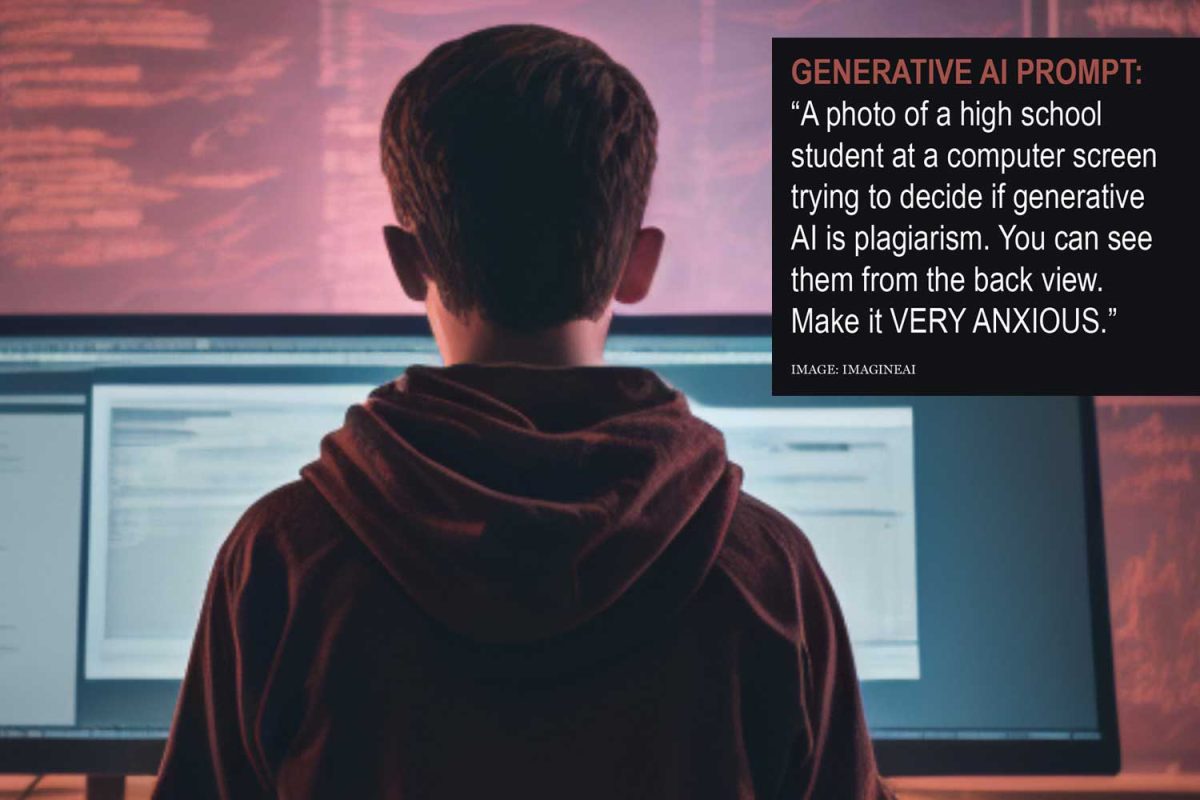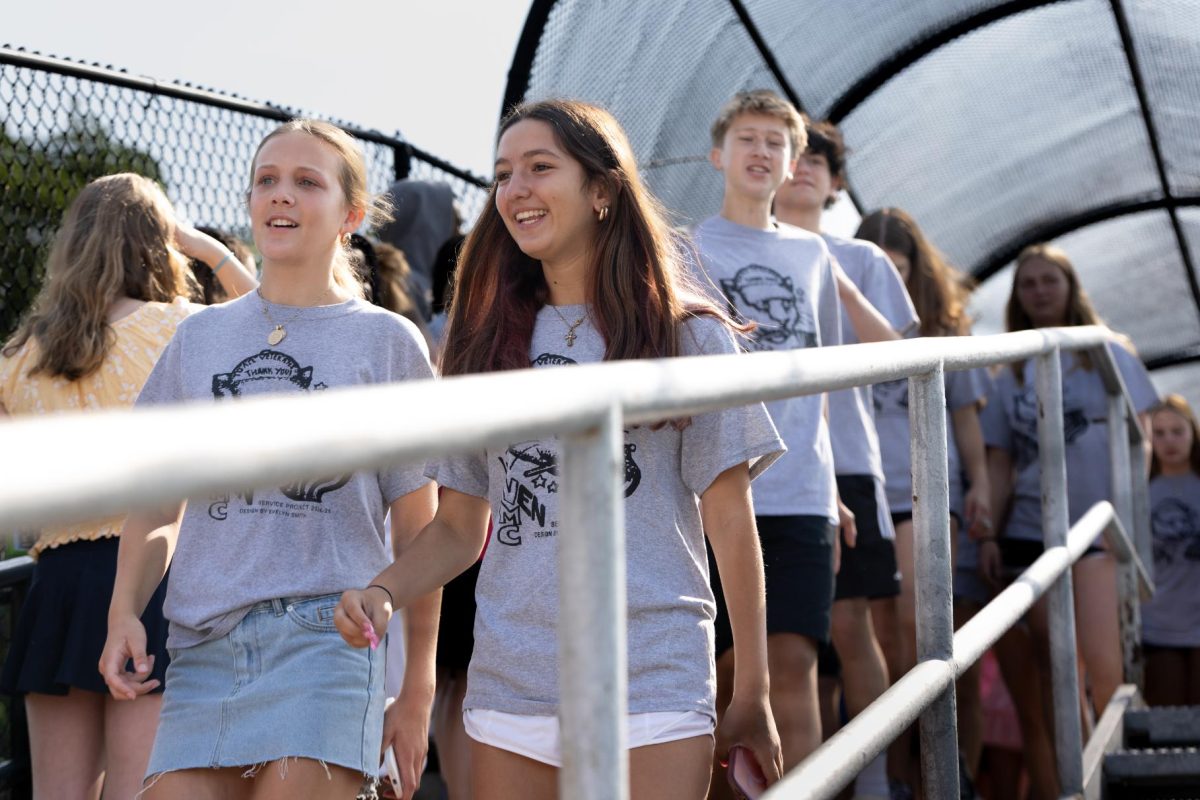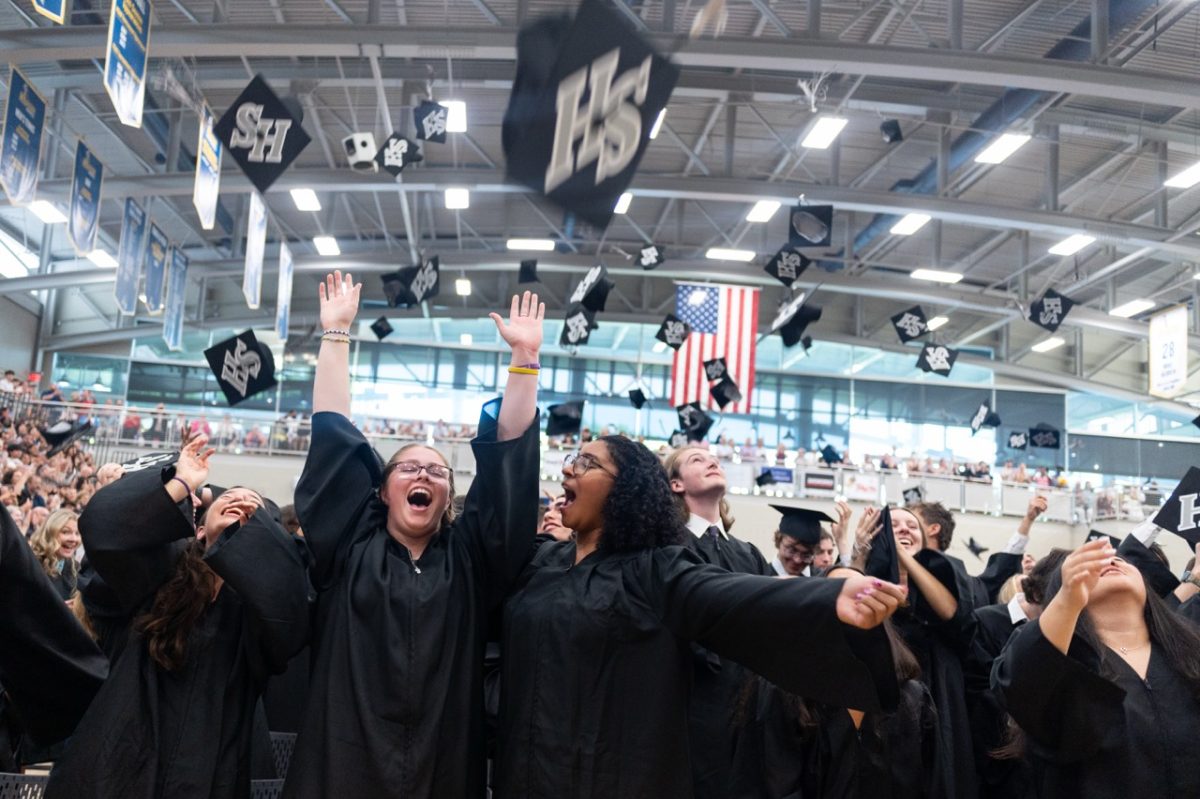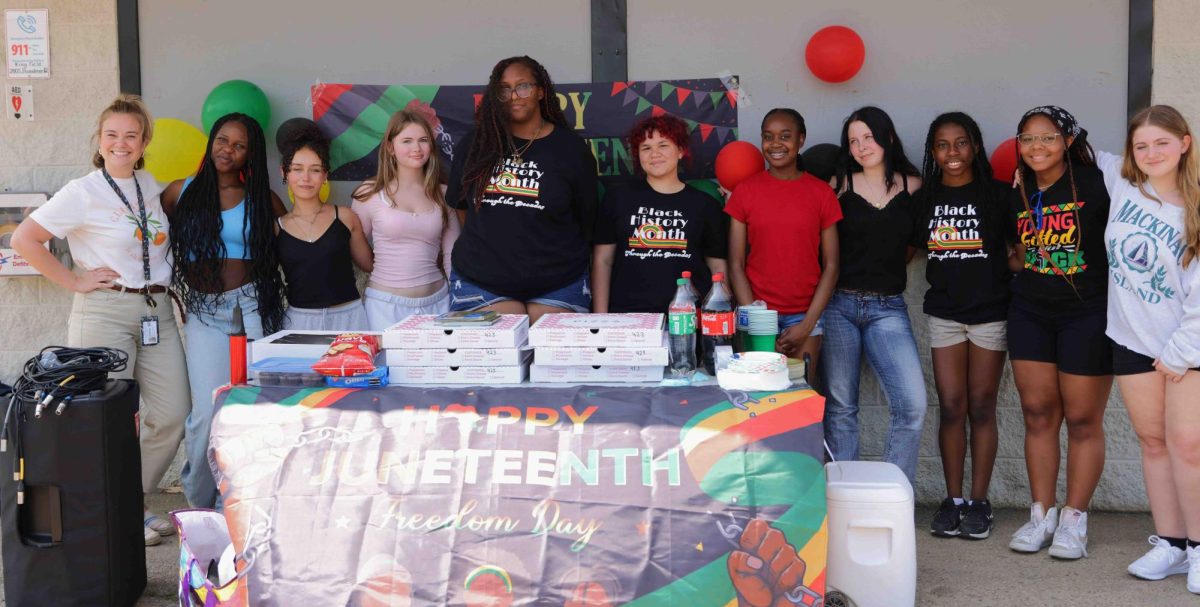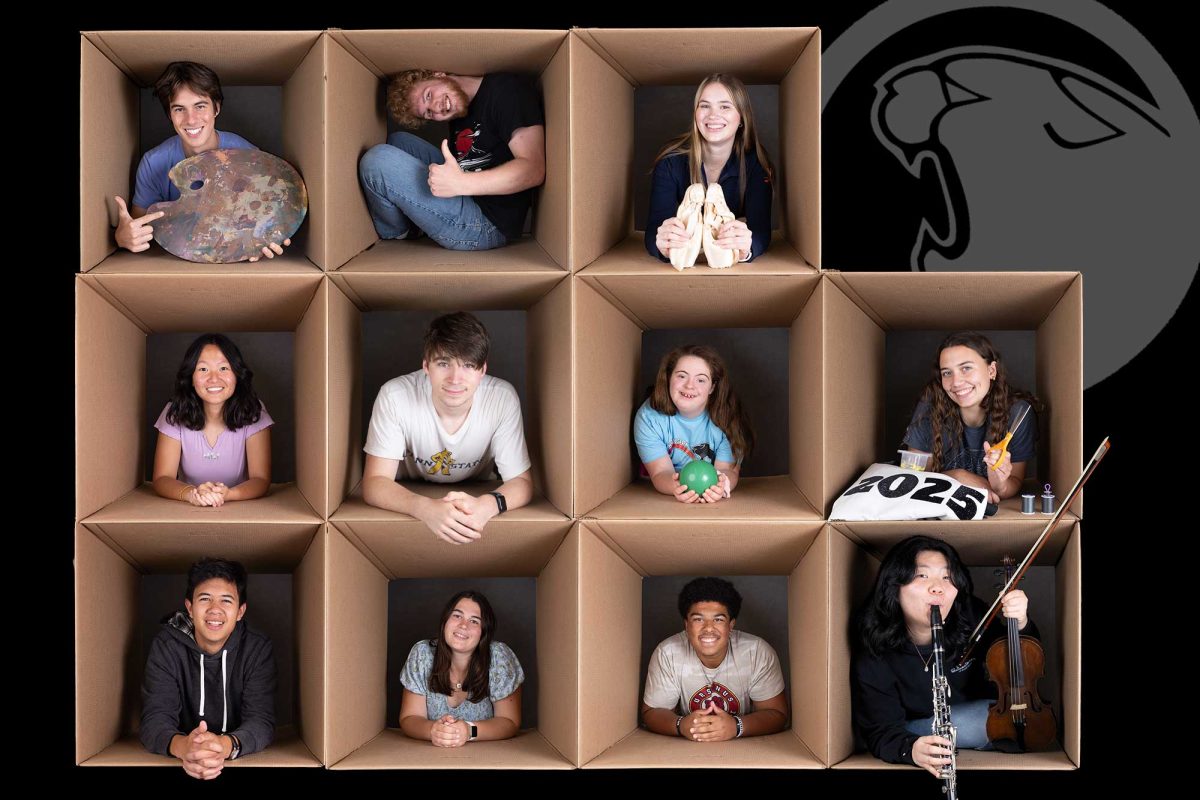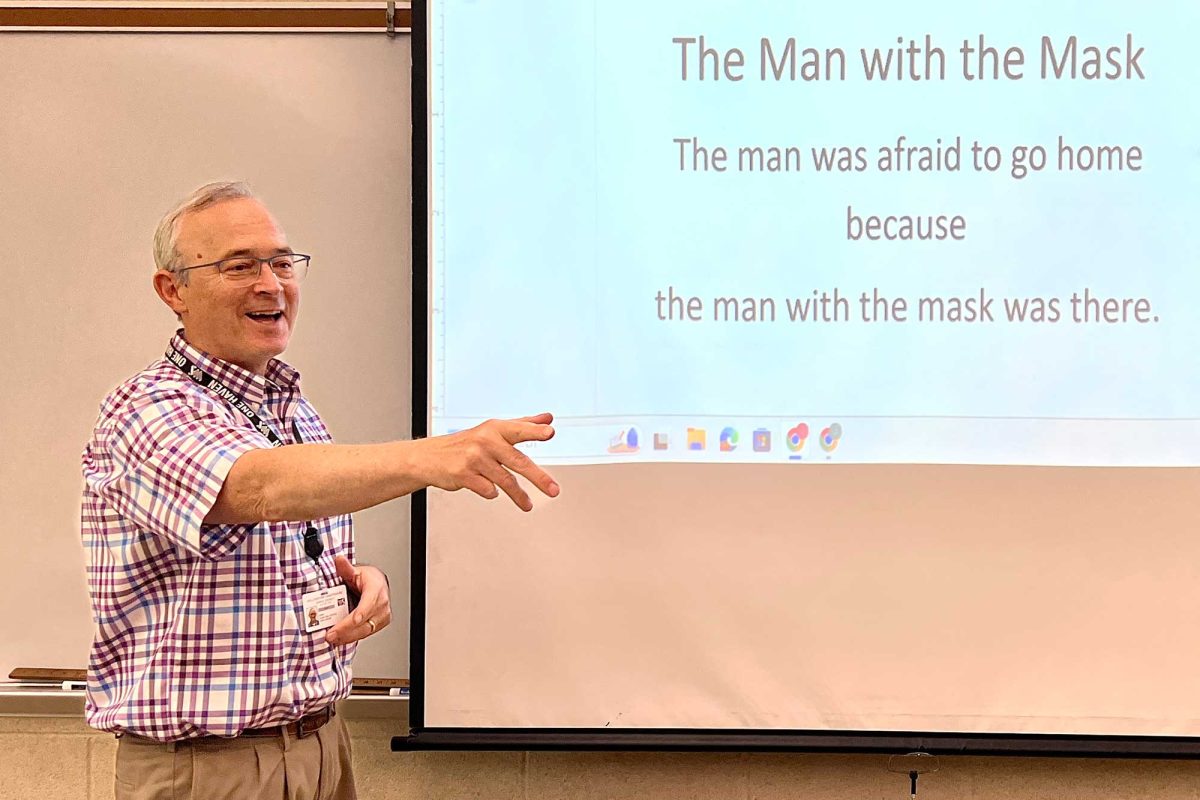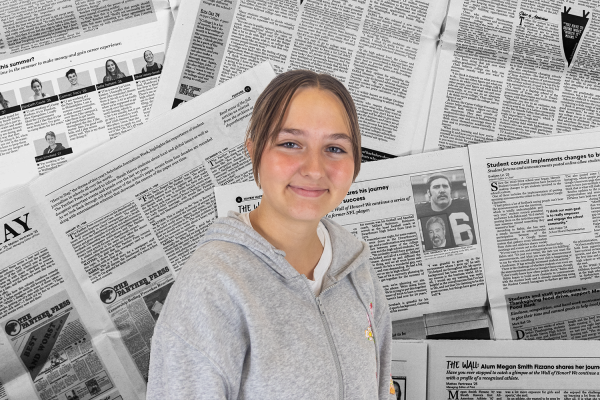Generative AI is a type of artificial intelligence distinguished by its ability to use outside sources to generate human-like writing or images.
Recently, this type of artificial intelligence has been popularized through ChatGPT, an AI generator launched in November 2022 that has become prevalent in schools as some students begin using it to help with—or complete—assignments.
Though the generator has become popular for writing, using it to do assignments isn’t foolproof.
“It’s very good at step-by-step directions,” librarian Mrs. Beth Cohen said. “It’s good at brainstorming ideas. It’s not good for research because it makes up things or it doesn’t know modern things. Its knowledge base ends a few years ago.”
“So, for example, if you were playing 20 questions with ChatGPT, it wouldn’t guess King Charles III, because he didn’t exist when ChatGPT was being created,” Cohen said.
Senior Joe Lynch has considered the implications of generative AI in academic writing.
“Asking ChatGPT to write a scholarly article for you, or a scholarly piece of writing for you kind of defeats the purpose of making a scholarly piece of writing,” he said.
However, he sees the possibilities of using ChatGPT to generate ideas. “I think there shouldn’t be anything wrong with just asking them to like help you brainstorm or get ideas for stuff to write about,” he said.
Generative AI tools like ChatGPT spark questions of intellectual property. Where is it getting its information from? And is that information being willingly given by its original creators, or is it being input by other users?
The New York Times recently reported on research estimating that generative AI chatbots like ChatGPT may invent information at least 3 percent of the time, and as often as 27 percent of the time. Experts refer to this tendency of chat tools to invent information as hallucination.
The research indicates that hallucination is more common when AI tools are asked to do more than summarize information. But even with simple tasks like summarizing news articles, hallucinations are still a factor.
“I think there are some pretty big ethical questions, and if you’re going to access AI at all—and especially use AI in this form—it raises concerns about accuracy and intellectual property,” English teacher Mrs. Miriam Drew said.
Ethics and integrity
A concern from some students is that when AI takes the place of students’ thoughts in academic works, it’s no longer their voice.
“I think a lot of people kind of take it for granted,” freshman Kay Liberi said. “I feel like essays and other things that you have to write are a reflection on how you’re doing as a student and just your personal ideas and thoughts. And if that’s coming from a computer, it’s not really yours. I get that it’s helpful, and I understand why kids want to use it, but I don’t think it helps.”
Senior Leah Gonzalez-Diaz suggested that AI is a useful tool to help summarize and condense information.
“I would say that the primary way I use it is to help for reviewing,” Gonzalez-Diaz said. “Obviously if you write an essay with it, that’s plagiarism, but I use it as a tool to help search for research. ChatGPT is neither a source nor something that I would say generates quotes from a source.”
The question of whether using ChatGPT to generate work for you is plagiarizing is a highly debated topic. According to a survey of 247 current students, 59% consider the use of AI to complete school assignments to be plagiarism.
The current Strath Haven High School student handbook does not directly address the use of AI tools in its academic integrity guidelines, but it does define levels of academic integrity violations by a cumulative point system.
Plagiarism is defined as a three-point violation. At six cumulative points of academic integrity violations, the degree of violations warrants notification on post-secondary applications, according to the handbook.
The handbook states that any level of academic integrity violation has a consequence of a zero grade on the assignment, as well as notification of the counselor and parent.
“I think once the ideas stop being your own, then it’s plagiarism,” Liberi said. “When the AI just kind of starts writing what you should be thinking, or at least putting the main points down– like ideas that you think should be in it. When that starts to get written by a computer, then it kind of becomes less of your own and more plagiarized.”
There are still many questions about the merits and downfalls of ChatGPT, but currently, many teachers do consider it plagiarism.
Most generative AI tools are currently blocked on Strath Haven’s network, including district-provided Chromebooks used outside of school.
Possibilities and potential
ChatGPT still has redeeming qualities, such as its ability to write more precise directions by pulling from multiple sources across the Internet. Director of Secondary Teaching Learning, and Innovation Dr. Leslie Pratt suggested that generative AI might be used for some basic tasks.
“Depending on your purpose, there are places for tasks that might be a little bit more rote, like giving me step-by-step instructions for how to fix the leak under my sink,” Pratt said. “Having generative AI that can pull from a whole host of websites to give me the best results for a non-plumber to be able to fix those kinds of things… I think there’s great potential.”
New AI tools are coming out frequently, including some that make life easier for teachers.
“There are some very cool teacher tools out there now,” Cohen said. “EdPuzzle now has a built-in feature where it reads the transcripts of the video and will create the questions for you. And there’s another one called EDUaide. If you give it a topic and say ‘Create a lesson plan to teach fourth graders about plants,’ you can prompt it and it’ll give you something… it’ll do a lesson plan.”
However, Cohen also compared teacher use of generative AI to buying or copying curriculum resources.
“It’s kind of the same thing as buying the canned curriculum of ‘Here’s the chapter questions at the end of the chapter,’” she said. “We tell students that they can’t use it and that it’s plagiarism, or they’re cheating if you use it to write their paper. So then, is it okay for teachers to use it?”
Beyond high school
Many colleges are beginning to develop their own AI policies.
The Northern Illinois University Center for Innovative Teaching and Learning released a compilation of AI policies at several universities across the nation. New courses on AI are also developing around the country.
Temple University allows the use of AI for “brainstorming and refining your ideas, fine-tuning your research questions, finding information on your topic, drafting an outline to organize your thoughts, and checking grammar and style.”
However, Temple prohibits the use of AI for “impersonating you in classroom contexts, such as by using the tool to compose discussion board prompts assigned to you, completing group work that your group has assigned to you, writing a draft of a writing assignment, and writing entire sentences, paragraphs or papers to complete class assignments.”
The University of Delaware’s AI policy depends on the course. The policy has four parts: Use Prohibited, Use Only With Prior Permission, Use Only With Acknowledgement, and Use Is Free With No Acknowledgement. A course has only one of the four parts.
At the University of California, “[All] assignments should be your own original work, created for this class. You must do your own work. You cannot reuse work written for another class. You should not use paraphrasing software (‘spinbots’) or AI writing software (like ChatGPT).”
Tools gaining foothold
Pratt thinks back to when calculators were introduced in school. She believes that ChatGPT and other AI sources will create the same mindset.
“I talked about this last year when calculators became really endemic in schools, when everybody had a calculator,” Pratt said. “There was this wave of concern about, ‘Oh my gosh, students won’t be able to do basic computation.’ A lot of that didn’t come to fruition, but it did change the way we thought about instruction.”
Cohen has a similar idea and believes that AI will eventually become a part of our daily lives.
“I don’t think it’s going to ruin teachers’ jobs,” she said. “I’ve seen several good examples like calculators; when calculators first came out, everybody was like, ‘Oh, we can’t let our students use calculators, they’ll forget how to do basic math.’ And now we have calculators on our cell phones and watches, and they have become an integrated part of math class.”
Dan Arena, a computer science professor at Vanderbilt, reported in Slate that he had ChatGPT take the final exam in his Algorithms class. In the end, his entire morning class of students scored higher than the AI tool, which scored a 72.5%, or a C-minus.
This suggests the same idea Cohen addressed: ChatGPT most likely won’t be taking teachers’ jobs.
However, AI tools have already found a foothold on our newspaper staff.
One of many new tools recently introduced is Murrow, a journalism AI that the Journalistic Learning Initiative came out with this year.
Murrow’s website states, “This resource is not designed to write stories for you, but it can offer suggestions to help you generate your own ideas and narrow in on a topic as well as offer feedback on your writing.”
“I used it to analyze one of my past stories on the proposed renovations to high school,” freshman reporter Clark Kerkstra said. “Some of it wasn’t helpful, but it had seen a line or two that I would have missed. And I feel like it did a good job of screening for any potential bias or journalistic errors.”
So much is happening with AI in the education world, and Pratt thinks that we need to be careful about what we use it for.
“As we think about what’s happening with ChatGPT and things like AI, we’re in a space of such great potential, as well as great challenge,” Pratt said. “We just need to be really thoughtful.”
Lynch agrees with the need for careful consideration, but is optimistic about the potential of AI.
“I don’t think AI is as evil as people make it out to be,” he said. “I think we just need to come up with rules for what is and is not acceptable. As long as there’s a standard for acceptable use, then I don’t see a problem with it.”



